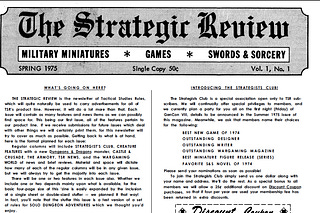Mini Six: Exploring Static Combat Numbers
Mini Six, a variant of the OpenD6 system, offers a solution with its "Fast Static Combat" system. This system aims to simplify combat by using pre-calculated defense values, making battles quicker and easier to manage. But what if we took this idea a step further and altered the core mechanics? Specifically, what would happen if we changed the static combat number calculation from a multiplier of 3 to 3.5? Let's take a look at this today as this idea was presented to me on the Open d6 discord server as solving an issue some people had with static combat. Something I've never had issues with or problems, but then again, I’ve never used Mini Six at higher levels.
Let's Talk Static Combat Numbers
In Mini Six, the "Fast Static Combat" system is designed to reduce the need for constant dice rolling during combat. Instead of rolling for defense each time an enemy attack, characters have static defense values that opponents must meet or exceed to land a hit. These static values include Dodge, Block, Parry, and Soak, each corresponding to different types of defenses.
Typically, these values are calculated by multiplying the relevant skill dice by 3 and then adding any extra points, known as pips, that the character might have in that skill. For instance, a character with a 5D+1 skill in Dodge would have a static Dodge value of 16 (5 x 3 + 1). This system offers a predictable and quick way to handle defenses, allowing for a smoother flow of combat.
So What Happens When We Shift That Modifier?
What if, instead of multiplying by 3, we increased the multiplier to 3.5? This change might seem small, but it could have significant effects on gameplay. By increasing the multiplier, the static combat numbers would rise across the board, making characters more resilient in combat.
For example, let’s consider a character with a 5D+1 Sword skill. Under the current system, their static Parry value would be 16. If we use a 3.5 multiplier, their Parry will increase to 18 (rounded down from 18.5). In practical terms, this means that opponents would find it harder to land a successful hit, emphasizing defense and making combat more challenging.
Consequences?
Slower Combat: By raising static combat numbers, battles might become more prolonged. Characters would be harder to hit, leading to longer encounters where both sides struggle to land decisive blows. This would make fights more about endurance and strategy than quick, decisive actions.
Altered Game Balance: Increasing static defense values could throw off the balance of the game. If characters become too difficult to hit, it might be necessary to adjust other mechanics, such as damage values or hit points, to keep the game fair and engaging. Otherwise, players might feel that combat lacks excitement or that their characters are invincible. We have enough of that mindset with mainstream D&D.
Impact on Character Progression: Higher static values could also affect how characters develop over time. As characters advance in skill levels, their static defenses would increase more rapidly, potentially leading to situations where even low-level characters are nearly untouchable. Something to consider big time if you are planning on making this change.
Conclusion
I am not sure I want to make this change, as I’ve never had issues with combat, and I normally don’t take games to such a high “level” so to speak. I think I will have to play test this a little bit to see how this change affects game play for me and a group. Maybe 3.25 (rounding down) could be an interesting compromise to the situation. It will give a slight boost in the beginning and towards higher levels, giving that little advantage to handle the situation.





